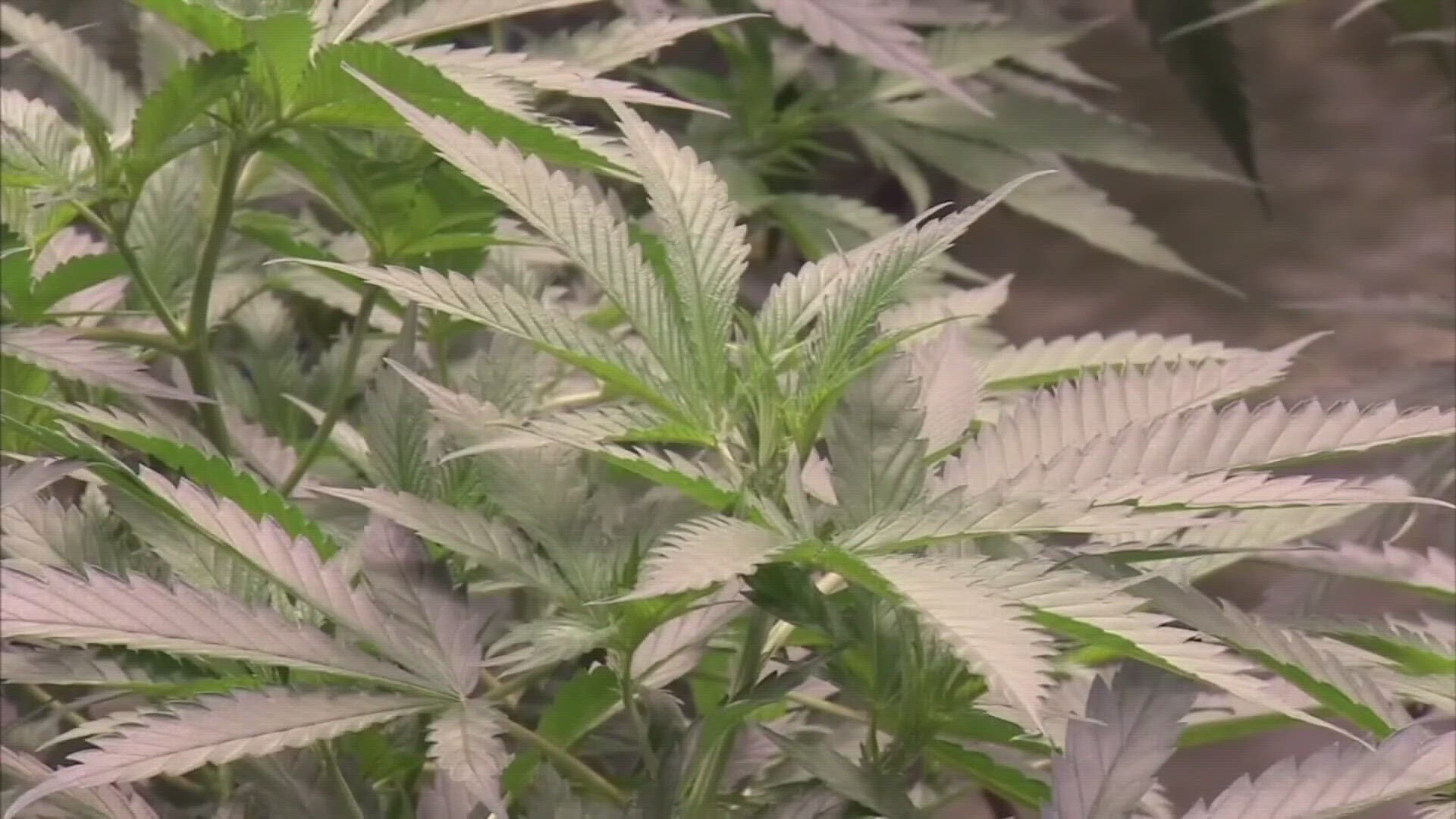COLUMBUS, Ohio — Changes could be coming to Ohio’s recreational marijuana law that is set to take effect Thursday. The senate revealed sweeping changes to the wording of Issue 2 in an unrelated alcohol control bill from the House Monday.
The public had an opportunity to comment on the proposed changes in front of the Senate General Committee Tuesday afternoon. It was a long list of speakers both supporting the changes and openly opposed to the proposed changes.
Some of the changes from the Senate include removing the home-grow provision. Issue 2 allowed people to grow up to six plants or up to 12 per household. The tax rate would also change. The Senate wants to increase the approved tax on marijuana products from 10% to 15% and change where that money goes. Public smoking of marijuana would also be prohibited and landlords and business owners would be able to make their own rules regarding marijuana usage.
There are several proposed changes targeted at preventing children from consuming marijuana products, a key point of concern for Governor Mike DeWine. Products would have to be sold in packaging that wouldn’t appeal to children.
“This bill represents a radical departure from the language of Issue 2 that was passed by 57% of Ohio voters when they came out to vote less than a month ago. Why the Senate has deigned to
immediately alter a law that was so recently passed by a substantial majority of
Ohio voters, I can only speculate,” said Geoff Kroff.
Kroff is the CEO of Galenas, LLC, a medical marijuana cultivator in Akron. He said some of the proposed changes would only boost the black market sales of marijuana, something lawmakers said they want to prevent.
“This bill would make the regulated market in Ohio uncompetitive with the black market as has been seen in all markets across the US when a state flips over to an adult use program. Law enforcement will de-prioritize marijuana related crimes, which will only serve to buttress the black market,” he said.
Some people, such as Corinne LaMarca, said some changes need to be made to the state’s recreational marijuana law set to take effect Thursday. She is the founder and director of Jennifer’s Message. She said she lost her daughter in a car crash involving an impaired medical marijuana user. She’s calling for more education about marijuana usage and driving.
“The internet is loaded with misnomers and lies about how marijuana effects a person driving and frankly, you can find commentary that supports just about any position one might have whether it's true or not, even the most ridiculous lies,” she said. “Marijuana impairment poses a severe threat to society as a whole. We have so many impaired drivers currently; now more will be added with the legalization of recreational cannabis. This is a very serious situation endangering our families’, relatives and friends. Losing someone you love is very devastating.”
One Columbus resident spoke to the committee. He said he’s in favor of some of the changes and not others, while there are changes he said should be made but aren’t listed.
“There is strong evidence that regular use of high concentration THC is addictive and cause serious mental and physical harm including schizophrenia, psychosis, loss of IQ, immune suppression, and loss of fertility. Evidence that concentrations over 10% are medically effective is lacking. Proposed THC limits are still way too high,” said William Schuck.
The senate changes still have a long way to go before they can take effect. The Republican-held House would still have to agree to the many changes from the Senate to House Bill 86, a bill focused on alcohol control. Governor Mike DeWine would then have to sign onto the change.
Issue 2 passed in November with 57% of the vote and is set to become law Thursday. Ohio is the 24th state to legalize recreational marijuana.
Unlike Issue 1, which was a constitutional amendment, Issue 2 was a ballot measure and the legislature is free to tweak it as it deems fit.

